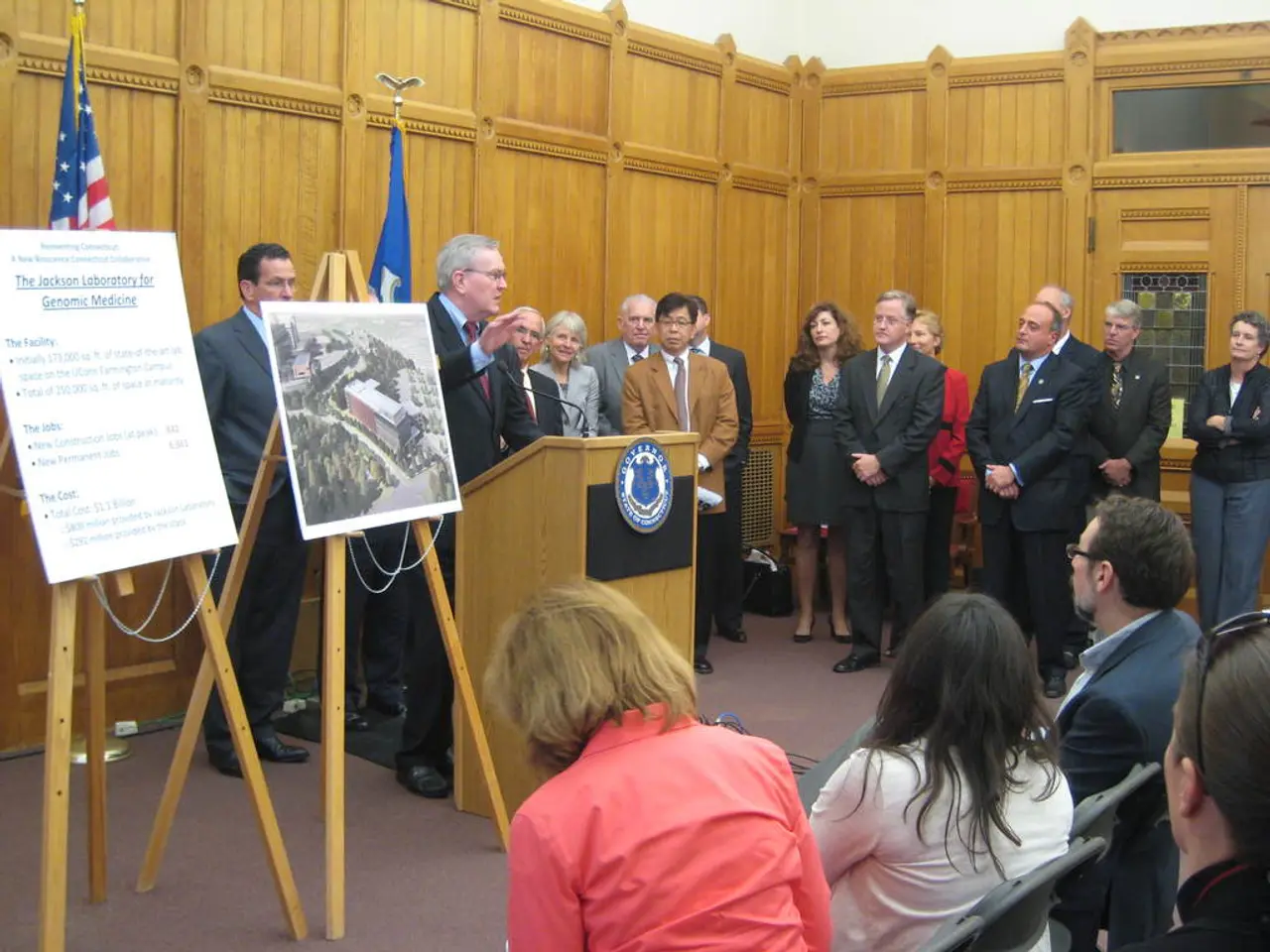Categorizing Political Figures According to Their Economic Beliefs
News Article: Comprehensive Dataset Reveals Global Political Leaders' Economic Ideologies
A groundbreaking dataset, titled "Identifying Ideologues: A Global Dataset on Political Leaders, 1945–2019", has been compiled by researcher Bastian Herre, based at the U.K.-based nonprofit Our World in Data. This extensive collection provides a qualitative and quantitative analysis of the economic ideologies of political leaders worldwide, spanning the post-World War II period to recent decades.
The dataset, which covers 182 countries annually from 1945 to 2020, classifies the economic stance of heads of state and government on a spectrum. This allows researchers to analyse trends in political leadership ideology over time and across countries. The dataset is designed to be a valuable resource for political science and economic research, offering insights into how leadership ideology correlates with governance, policy outcomes, and global economic trends.
The dataset includes political leaders from around the globe and classifies their economic ideology based on their stated positions and policies. Leaders of democratic countries are more likely to have either leftist or rightist ideologies, according to the dataset, while dictators are more likely to hold a range of economic ideologies. Each leader is classified as leftist, centrist, rightist, or non-ideological.
The dataset is featured on Our World in Data and was also highlighted by the platform as part of their effort to provide structured, accessible data on political leadership and ideology over modern history. It may include additional metadata, such as biographies, tenure dates, regime types, and economic policy indicators aligned with the ideological coding.
However, it's important to note that the dataset officially ends in 2019, so there may not be comprehensive coverage through 2020 unless subsequent updates exist beyond the original publication. The primary source describing this dataset is Bastian Herre's study and dataset paper from 2021, which is referenced in academic summaries and on platforms like Our World in Data and Wikipedia.
If you need the dataset for research or analysis, you would typically seek out Bastian Herre’s original publication or the Our World in Data platform for access and detailed documentation. The image associated with this article is credited to Flickr user National Bank of Ukraine.
- The dataset, compiled by researcher Bastian Herre, can be useful for AI algorithms studying the correlation between political leadership ideologies and policy-and-legislation outcomes, as it offers a comprehensive analysis of global leaders' economic stances from 1945 to 2019.
- In the realm of general news, the release of the "Identifying Ideologues" dataset has sparked conversations about how AI can leverage data to better understand the economic policies of political leaders and their impact on economies worldwide.
- The ongoing research based on the "Identifying Ideologues" dataset could potentially influence future policy-and-legislation, as it sheds light on the economic ideologies of leaders from democratic and non-democratic countries, providing insights that can guide policy-makers and inform citizens about the economic stands of their political leaders.







